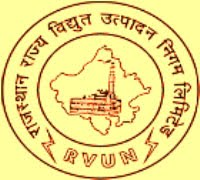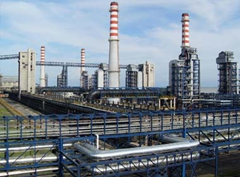
After Reliance Power, the company’s arch rival, Tata Power, too, has independently secured a favourable opinion from the country’s top legal brains, including retired Chief Justice of India M N Venkatchaliah and former Solicitor General Dipankar Gupta, over the legality of a government decision allowing Reliance Power to divert surplus coal from the captive mines associated with its Sasan ultra mega power project in Madhya Pradesh.
The opinion given to Tata Power runs contrary to what legal experts have told Reliance Power on their private initiative aimed at strengthening the case on coal diversion. The two companies, which are engaged in a legal battle where Tata Power has challenged the government’s decision in the Supreme Court, are likely to use the legal opinion they secured to strengthen their respective cases ahead of the Saturday’s ministerial panel meeting.
The empowered group of ministers (EGoM) has been convened to examine the official opinion from the Attorney General. At its December meeting, the group headed by finance minister Pranab Mukherjee, had decided to seek fresh legal opinion from the AG Goolam E Vahanvati to defuse the controversy arising from the group’s earlier in-principle decision in 2009 to allow Reliance Power to divert surplus coal following adverse remarks made in a draft report of the Comptroller and Auditor General (CAG) that said that decision meant windfall gain for Reliance Power.
In the opinion given to Tata Power, legal experts have termed the EGoM permission as ‘ultra vires’ as the decision with regard to diversion of coal went against stated policy for allocation of coal blocks. Both Venkatchaliah and Gupta have also said that a change in the terms and conditions of the bid for UMPP in the immediate aftermath of the completion of the bidding process would in effect amount to changing the terms and conditions of the bidding process itself, which is also violation of Article 14 of the Constitution and also arbitrary and unreasonable.
“Tender documents should not be designed to encourage speculation. The allocation of the coal mines is intertwined with the Sasan project and cannot be used for any other project. The permission given by EGoM has augmented the right of the successful bidder for incremental coal. It is ultra vires of the specific provisions of the statute, rules, and the policy governing allocation of coal, and also altered the bid conditions,” Venkatchaliah said in his opinion given to Tata Power.
Tata Power is fighting the issue not solely on government’s decision to allow for diversion of surplus coal, but also the changes the decision made in the bidding condition finalised for Sasan power projects where the company had emerged with the second best bid after Reliance Power. The company has said that as bid conditions were changed after completion of process, fresh bidding for the project should be undertaken with explicit permission on diversion being included in the bid document.
“…In any event, the alterations in the terms and conditions of the contract, which was the subject matter of the tendering process is itself arbitrary, unreasonable and intended to grant undue favours to private parties and against public interest,” Gupta said.
“Tata Power would have a cause of action to file a writ petition under Article 226 for quashing of the award of Sasan UMPP and/ or in any event the grant of permission to use coal from the Captive Coal Mines linked to Sasan UMPP for other projects of RPL, which would have a reasonable chance of success,” Gupta added.
The views given to Tata Power run contrary to views given by legal experts to Reliance Power. Retired chief justices AS Anand and AM Ahmadi and former attorney general Soli Sorabjee in their respective opinion’s have said that there was no violation of Sasan UMPP bid conditions and have cautioned that the cancellation would amount to violation of the principle of promissory estoppel.
The issue between two private sector power entities involves a decision taken by an EgoM in 2009. The group had allowed Reliance Power (RPL), the successful bidder of the Sasan UMPP, to use surplus coal from the Sasan block for another 4,000 mw power project at Chitrangi in Madhya Pradesh.
The government has allocated Moher, Moher-Almohri and Chhatrasal captive coal blocks to help the private developer meet the fuel requirement of the Sasan UMPP, which it bagged through tariff-based competitive bidding.
Tata Power, which bid for the Sasan UMPP, has challenged in court the government’s decision permitting Reliance Power to divert excess coal from the Sasan mines to the Chitrangi power project. Tata Power also cited while tariff for Sasan was 1.19 per unit, the same for Chitrangi has been fixed at 2.45 per unit though coal is coming from the same blocks.
As per existing regulations, captive coal mines are given to specific end-users. Any surplus coal generated from such blocks becomes a property of the central government which then disposes it through its PSU Coal India (CIL). In a few special cases, however, the coal ministry accords permission for sale of excess coal on a temporary basis. With the approval of the bidding process, even captive blocks would now have to be bid.
The EGoM on Saturday is expected to take a view whether its in-principle approval could be could be converted into a final decision after taking legal opinion of the Attorney General.
-----------------------------------------------
Power India – A popular blog on Indian Power Sector
 Power India found that Rajasthan Government has scrapped the tenders it issued for two thermal power projects worth RS. 12,000 Crs which were bagged by Bharat Heavy Electricals Limited (BHEL).
Power India found that Rajasthan Government has scrapped the tenders it issued for two thermal power projects worth RS. 12,000 Crs which were bagged by Bharat Heavy Electricals Limited (BHEL). 


